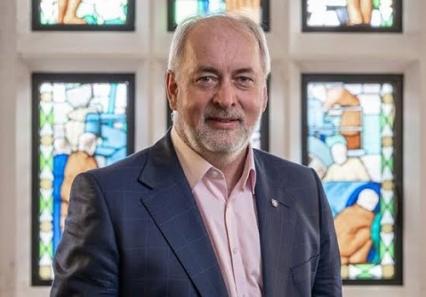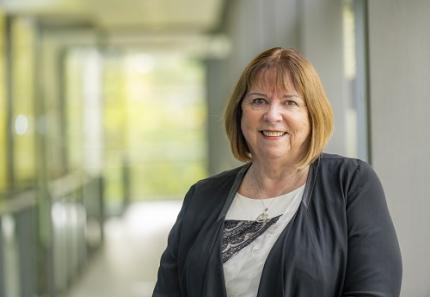
Professor Nick Jennings
Professor Nick Jennings was awarded the title in 2014
Prestigious Regius Professorship recognises Southampton as world-leader in Computer Science.
Southampton’s excellence as a world-leader in Computer Science is recognised by the award of a rare Regius Professorship that is bestowed by HM The Queen.
We are one of only a handful of universities to receive the prestigious Regius Professor title and the only recipient in the UK to receive a Regius Professorship in Computer Science.
Regius Professorships fall under the Royal Prerogative and each appointment has to be approved by the Monarch on ministerial advice.
Southampton was one of 12 institutions to be given the accolade in 2013 to mark the Queen’s Diamond Jubilee. In 2009, two others were awarded to mark the 200th anniversary of Charles Darwin’s, but before that, the most recent Regius Professorships were created by Queen Victoria.
The University awards the Regius Professor title to an existing professor, or can appoint a new professor to the role.
Southampton was granted the award in recognition of its pioneering work in Computer Science that has grown in scale and global eminence.
Our international reputation attracts students and researchers from around the world, provides academic leadership and continues to define and develop new leading-edge technologies and approaches.
Our computer scientists are renowned for their world-leading achievements include the development of pioneering hypermedia systems, laying the foundations of agent-based computing and intelligent systems, and for founding and fostering Web Science as an academic discipline.
We continue to set the standard at the forefront of computer science research and education, with our academics and researchers driving forward the future exploration of Computer Science.
Southampton has had two Regius Professors since 2013 – Professor Nick Jennings and Professor Dame Wendy Hall.
Nick, who at the time was Professor of Computer Science and a Chief Scientific Advisor to the UK Government, was awarded the title due to his internationally recognised authority in agent-based computing and intelligent systems.
He pioneered the application of multi-agent technology, developing some of the first real-world systems in business procure management, energy systems, sensor networks, disaster response, telecommunications and eDefence, and led the ORCHID programme that investigated how people could work in partnership with computational agents to develop world-leading science and real-world applications in areas such as disaster response, citizen science and smart energy systems.
Since leaving Southampton, Nick has been the Vice-Provost (Research) at Imperial College and is currently the President and Vice-Chancellor of Loughborough University.
Dame Wendy became the second Regius Professor in Computer Science in recognition of her world-leading contribution to Computer Science and to the scientific community more widely as well as her leadership at the forefront of Web Science.
She is known internationally as a leading light in the development of Web Science and recognised the world over for her pioneering role as one of the first computer scientists to embark on serious research into multi- and hyper-media technologies before the existence of the World Wide Web.
A Professor of Computer Science, Dame Wendy was also instrumental in the establishment of the Web Science Institute at Southampton and is one of its Executive Directors.
During her distinguished career, Dame Wendy has held many national and international roles including President of the British Computer Society, Commissioner for the Global Commission on Internet Governance, member of the Prime Minister’s Council for Science and Technology, and was the first person outside of North America to become President of the Association of Computing Machinery (ACM). She is also a Dame Commander of the Order of the British Empire (DBE), is the UK government’s first Skills Champion for Artificial Intelligence and was appointed Chair of the Ada Lovelace Institute in 2020.

Professor Nick Jennings was awarded the title in 2014

Professor Dame Wendy Hall was the second post-holder in 2017